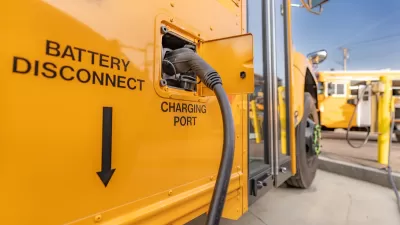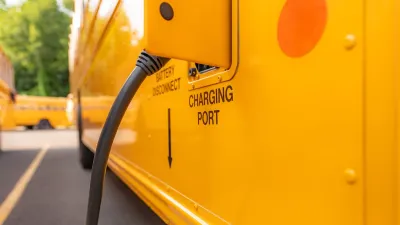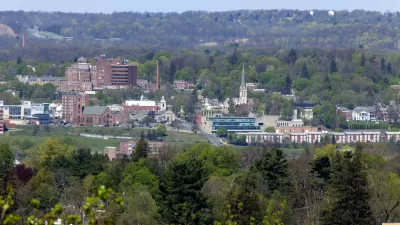California has awarded $500 million to fund 1,000 zero-emission school buses and chargers for educational agencies as part of its effort to reduce pollution, improve student health, and accelerate the transition to clean transportation.

California has awarded $500 million in funding to help school districts and educational agencies purchase 1,000 zero-emission school buses and install associated charging infrastructure, reinforcing the state's national leadership in clean school transportation. Administered by nonprofit CALSTART in partnership with the California Air Resources Board (CARB) and the California Energy Commission (CEC), this initiative targets the communities most impacted by air pollution. Priority was given to rural and underserved districts, with 98 percent of awarded agencies serving low-income or disadvantaged communities. Each grant includes up to $375,000 per bus and up to $95,000 for charging equipment, with the requirement that an old diesel-powered bus be scrapped for every new bus received.
This investment is part of the state’s broader climate and public health strategy, with zero-emission school buses playing a key role in reducing greenhouse gas emissions and protecting children from the harmful effects of diesel exhaust. Studies show that despite accounting for less than 10 percent of a child’s day, school bus commutes can contribute up to 33 percent of their daily exposure to air pollutants. The new buses funded through this round of grants are expected to reduce 18,000 metric tons of greenhouse gases annually — equivalent to removing 4,000 cars from the road each year — and will help California meet its goal of 100 percent zero-emission school bus purchases by 2035 (2045 for rural areas).
This latest round of funding builds on over $1.3 billion already invested by the state, resulting in more than 2,300 zero-emission buses funded and over 1,100 already in operation — the majority located in pollution-burdened communities. The transition not only supports California’s goal of achieving carbon neutrality by 2045 but also demonstrates a scalable model for clean, equitable, and community-focused infrastructure investments across the country.
FULL STORY: California awards $500 million in funding for 1,000 zero-emission school buses

Planetizen Federal Action Tracker
A weekly monitor of how Trump’s orders and actions are impacting planners and planning in America.

Congressman Proposes Bill to Rename DC Metro “Trump Train”
The Make Autorail Great Again Act would withhold federal funding to the system until the Washington Metropolitan Area Transit Authority (WMATA), rebrands as the Washington Metropolitan Authority for Greater Access (WMAGA).

The Simple Legislative Tool Transforming Vacant Downtowns
In California, Michigan and Georgia, an easy win is bringing dollars — and delight — back to city centers.

DC Backpedals on Bike Lane Protection, Swaps Barriers for Paint
Citing aesthetic concerns, the city is removing the concrete barriers and flexposts that once separated Arizona Avenue cyclists from motor vehicles.

In These Cities, Most New Housing is Under 441 Square Feet
With loosened restrictions on “micro-housing,” tiny units now make up as much as 66% of newly constructed housing.

Albuquerque’s Microtransit: A Planner’s Answer to Food Access Gaps
New microtransit vans in Albuquerque aim to close food access gaps by linking low-income areas to grocery stores, cutting travel times by 30 percent and offering planners a scalable model for equity-focused transit.
Urban Design for Planners 1: Software Tools
This six-course series explores essential urban design concepts using open source software and equips planners with the tools they need to participate fully in the urban design process.
Planning for Universal Design
Learn the tools for implementing Universal Design in planning regulations.
Smith Gee Studio
City of Charlotte
City of Camden Redevelopment Agency
City of Astoria
Transportation Research & Education Center (TREC) at Portland State University
US High Speed Rail Association
City of Camden Redevelopment Agency
Municipality of Princeton (NJ)





























